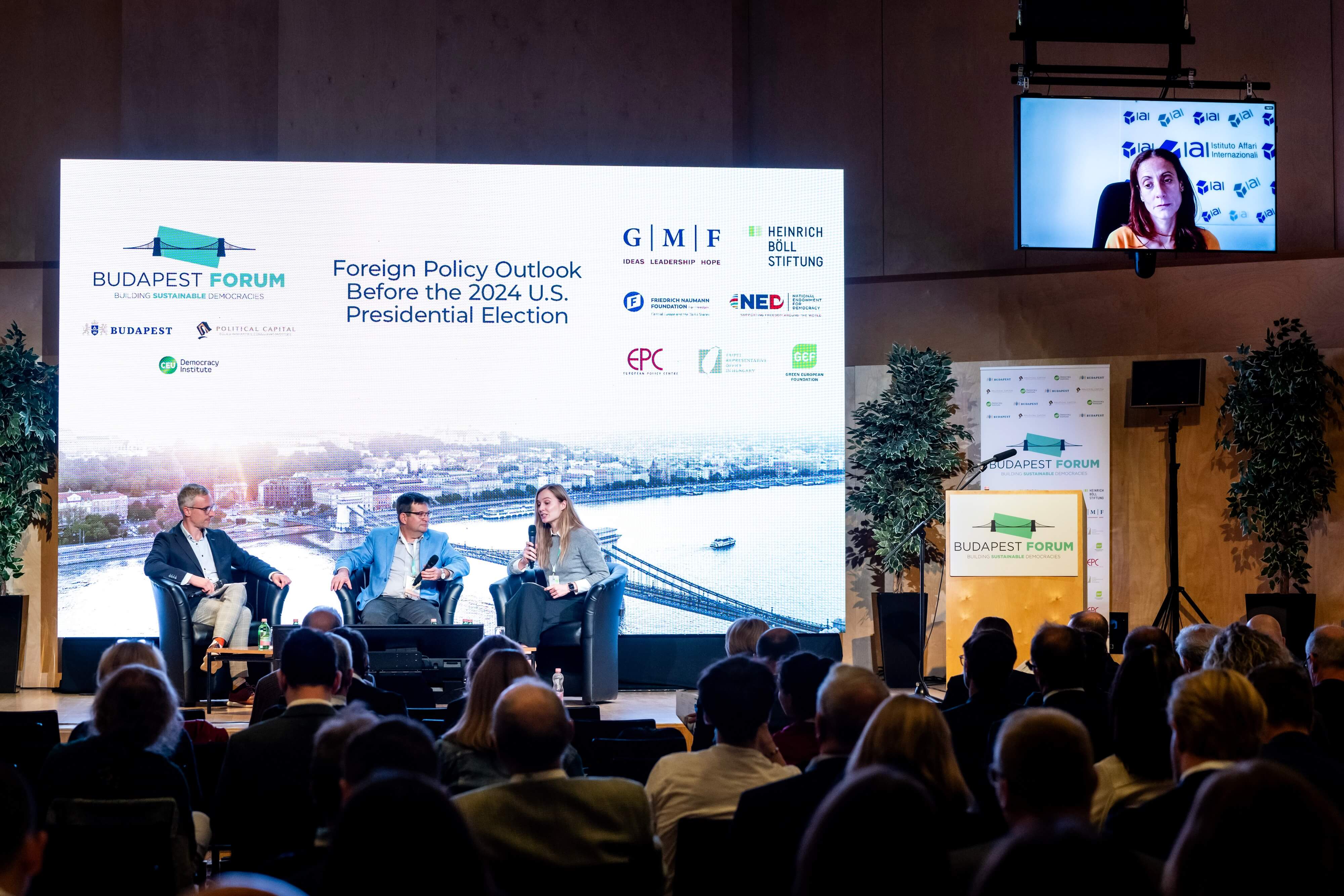Foreign Policy Outlook Before the 2024 U.S. Presidential Election
2024-09-26
Speakers:
- David Baer – Professor, Texas Lutheran University
- Botond Feledy – Founding Partner and CEO, Red Snow Consulting; Program Manager, European Leadership Program
- Nathalie Tocci – Director, Istituto Affari Internazionali, Part-time Professor, School of Transnational Governance, European University Institute (online)
- Moderator: Flóra Garamvölgyi – Contributing Writer, The Guardian; Investigative Reporter, Radio Free Europe/Radio Liberty

Main takeaways:
- Speakers reflected on the speech, and the counsel David Pressman, Ambassador of the United States of America to Hungary, received in preparation for his mission in Hungary, namely, “watch what the government does, not what it says.”
- Botond Feledy divided the different periods of PM Orban's communication strategies and actions. There were turning points in the deterioration of U.S.-Hungarian relations, the last one in 2022 when Russia attacked Ukraine. Viktor Orbán openly communicates that he prioritizes loyalty over institutions, and this is a crucial difference from the attitudes of other politicians.
- Nathalie Tocci underlined that the speech was also an act.
- David Baer questioned why others in the U.S. do not speak like the U.S. ambassador, but he also stressed that this speech was frightening from a Hungarian point of view.
- The U.S. elections have a notable impact on Europe in terms of security and the economy. Nathalie Tocci highlighted that the result of the U.S. election will have an impact on liberal democracies in Europe, given the second wave of nationalist populism on the continent.
- Conversely, David Baer argued that the threat or the impact of a second Trump administration on democracies may be exaggerated.
- European leaders are concerned that a Trump or Harris administration would implement an Inflation Reduction Act 2.0, which could deal a huge blow to the competitiveness of European industry. The U.S. could pivot to Asia instead of focusing on Ukraine. Harris would be more diplomatic about the speed of the pivot to Asia.
- The composition of the Congress is also an issue.
- Hungary’s stance on China and Russia is worrying.
- Conversely, David Baer argued that Hungary’s China policy should be seen within the broader European China policy. He did not consider it to be an exceptional policy.
- Hungary's role in Europe has been significantly diminished, as evidenced by the European Commission portfolio that the country received from Ursula von der Leyen, the President of the Commission.
- Public opinion polls on the transatlantic relations:
- In the U.S., there is no tangible support in favor of isolationism.
- The enthusiasm of the Hungarians for the transatlantic relationship is declining dramatically.
- There is no dominant European public opinion. The general anxiety is a significant factor, which can lead to paralysis. There is a sizeable segment of the population that is strongly anti-American.
Policy recommendations:
- Europe has to work on its competitiveness, invest in its defense and assume greater responsibility in Ukraine’s defense against Russia, ultimately be more resilient. Regardless of who wins the U.S. presidential election, these actions must be carried out.
Copyright 2026. Political Capital Policy Research and Consulting Institute, all rights reserved.

